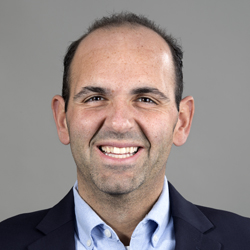
by Ralph A. Gigliotti
10 August 2020
Share this article:
In light of the multitude of crises we currently face, one cannot help but wonder: Is this the beginning of the end of leadership education and development as we know it?
I have had many conversations with colleagues throughout the United States and beyond over the last few months regarding the current collision of crises and their impact on our work in leadership education and leadership development.
The convergence of these crises—a global pandemic, growing economic upheaval, sweeping racial unrest, heightened partisan polarization, and the ongoing impact of climate change, among others—threaten our way of being in both the short term and the long term. These crises pose significant challenges to those engaged in leadership across settings and sectors, and the very survival of many organizations remains uncertain.
This historical moment presents an interesting set of paradoxes for leaders and those engaged in leadership education and development, including the desire for information during a time of remarkable uncertainty, the hunger for connection during a period of social distancing, and the need for swift and agile leadership within organizations and environments that tend to privilege careful and deliberative decision making, particularly within the context of higher education (Gigliotti, 2019; Gigliotti, forthcoming).
Karl Weick (1993) refers to periods such as these as cosmology episodes – moments in time when meaning collapses and “when people suddenly and deeply feel that the universe is no longer a rational, orderly system” (p. 633). According to Weick, “What makes such an episode so shattering is that both the sense of what is occurring and the means to rebuild that sense collapse together” (p. 633).
The convergence of these crises—a global pandemic, growing economic upheaval, sweeping racial unrest, heightened partisan polarization, and the ongoing impact of climate change, among others—threaten our way of being in both the short term and the long term.
For those involved in the work of leadership education and development, the crises of the moment can be both paralyzing and invigorating. As budgets are slashed, we are left to wonder if our work will continue to be valued in ways it might have been pre-crisis. At the same time, we understand that the challenges of our time demand effective, ethical, and engaged leadership – and that the growing body of leadership writings, courses, programs, services, and assessments can contribute meaningfully to the enhancement of individual and collective leadership efficacy.
So, while this may be the beginning of the end of leadership education and development as we know it, perhaps it will usher in a new and even more important stage for our shared work.
I tend to view this moment as one that may very well punctuate the state of the field into before and after. I remain confident of the important role of leadership education and development in helping individuals and organizations respond to the cascading and sustained crises that challenge our ways of being. In some respects, this work may never have been more important. If so, it is incumbent on us to engage in the following practices and to connect our efforts to the strategic priorities of our organizations.
- Create meaningful opportunities for dialogue across the lines of difference within our organizations.
- Develop mechanisms and venues for learning about the current convergence of crises in order to inform how the organization and its leaders will respond to future crises.
- Assist in organizational efforts to rebuild, repair, and reinvigorate in the aftermath of the crisis, using the concepts and principles of leadership education and development as a guide.
- Build self-awareness, allow others to deepen their own self-awareness, and develop an enhanced recognition of the ways in which we engage with others in the pursuit of shared goals.
- Focus on the cultivation of individual and collective leadership capacity.
- Model practices for effective leadership that we hope others will adopt as we work together to navigate the challenges of our time.
- Focus attention on the quality, rigor, and impact of our work in leadership education and development, and pursue creative opportunities for the design, delivery, and assessment of these efforts in what is likely to be a disruptive and uncertain year ahead.
The contours of the field have been defined and refined over time (Guthrie & Jenkins, 2018), and this proves to be another juncture for refinement. There exists an opportunity to create and forge a new agenda for leadership education and development – one that addresses the challenges of the past and envisions and reimagines the value of our work for a future that may look quite different from that which came before us.
Amid the pandemic, it has been repeated with some frequency that within crisis exists tremendous opportunity, and within the chaos of disaster one may encounter peace, clarity, and an awakening of some kind. This sentiment resonates in a deeply personal way for me.
My daughter, Cecilia, was born on March 19, 2020. I will never forget the juxtaposition of this moment – holding our alert, innocent, and beautiful new daughter in the hospital room, surrounded by horrifying news headlines scrolling across the TV screen, a collapsing stock market, sounds of sirens from the nearby community, and workers preparing a drive-through COVID-19 testing site in the distance.
Indeed, some glimmer of hope can be found in darkness, and so too we must collectively find ways in the uncertainty of this moment to advance the work of leadership education and development and create the conditions that can allow those around us to thrive in their leadership endeavors. As we look ahead, those involved in leadership education and development can play an important role in repair and reinvention, healing and transcendence.
References
Gigliotti, R. A. (forthcoming). Sudden shifts to fully online: Perceptions of campus preparedness and implications for leading through disruption. Journal of Literacy and Technology.
Gigliotti, R. A. (2019). Crisis leadership in higher education: Theory and practice. New Brunswick, NJ: Rutgers University Press.
Guthrie, K. L., & Jenkins, D. M. (2018). The role of leadership educators: Transforming learning. Charlotte, NC: Information Age Publishing.
Weick, K. E. (1993). The collapse of sensemaking in organizations: The Mann Gulch disaster. Administrative Science Quarterly, 38(4), 628–652.

Ralph A. Gigliotti, Ph.D. is the Director of the Center for Organizational Leadership at Rutgers University, where he provides executive leadership for the portfolio of signature academic leadership programs, consultation services, and research initiatives. He also serves as an associate faculty member in the Ph.D. Program in Higher Education and part-time lecturer in the Department of Communication. He is the author of the recently published Crisis Leadership in Higher Education: Theory and Practice (Rutgers University Press, 2019). Ralph is a member of ILA and has presented at past conferences over the last few years. He led a webinar on Crisis Leadership for the ILA community in April 2020.


